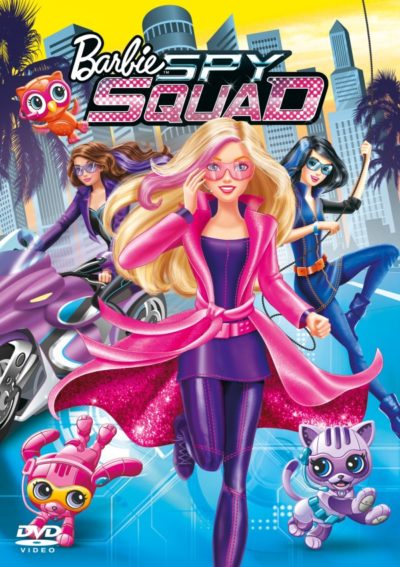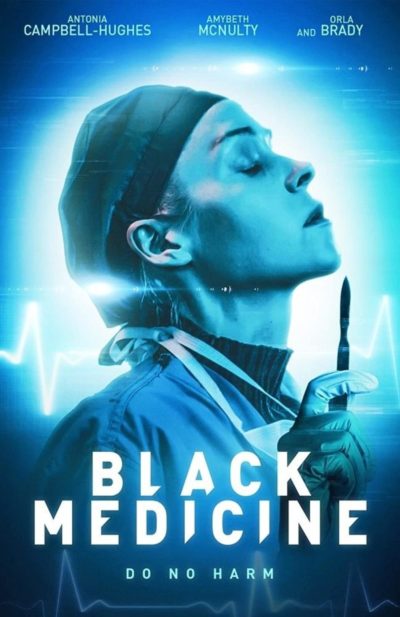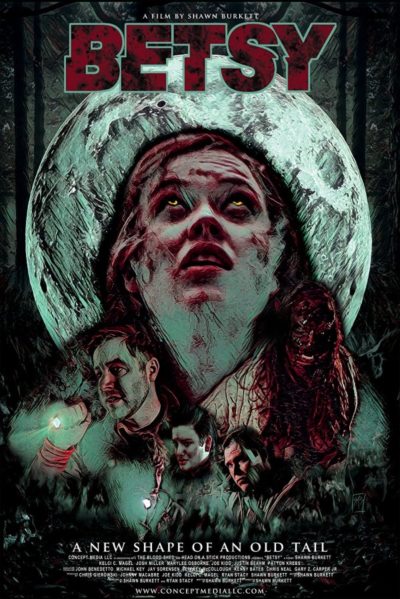★★
“The hole story”
 Lara Winslet (Daigh) is a vulcanologist, who is on the side of a mountain in Italy, taking samples, when the ground gives way beneath her, and she falls into an underground pit, damaging her leg in the process. Help isn’t going to come, so with limited resources (not to mention a count of functioning limbs that stops at three), she is going to need to cope with the situation on its own, and figure a way out of what could easily become a fatal scenario. Meanwhile, on the outside, her father (Cosmo) is becoming increasingly frantic. This is erhaps because if Lara doesn’t come back, he’s going to be stuck permanently with her kid (Di Mauro). That would be my reaction, anyway…
Lara Winslet (Daigh) is a vulcanologist, who is on the side of a mountain in Italy, taking samples, when the ground gives way beneath her, and she falls into an underground pit, damaging her leg in the process. Help isn’t going to come, so with limited resources (not to mention a count of functioning limbs that stops at three), she is going to need to cope with the situation on its own, and figure a way out of what could easily become a fatal scenario. Meanwhile, on the outside, her father (Cosmo) is becoming increasingly frantic. This is erhaps because if Lara doesn’t come back, he’s going to be stuck permanently with her kid (Di Mauro). That would be my reaction, anyway…
There may be ways to make this kind of thing exciting. I imagine 127 Hours must have been able to manage it, though not having seen it, I can’t be specific on the techniques it used. Breath could have used some help, as there isn’t a great deal of adrenaline pumping through the veins of this situation. To try and generate some, it keeps flashing back to sequences set earlier and off the mountain, covering things like Lara’s affair with fellow scientist Adam (Chupin), or her more or less abandoning her daughter for the sake of career advancement in the name of scientific discovery. While this does provide some fill-in colour for her character, we eventually go back to her sobbing in a literal pit of despair.
I can’t really complain about the performances, and the photography does generate a decent sense of claustrophobia. I get the message that there are times when you can’t rely on anybody else, and have (again, more or less literally) to pull yourself up. Though I tend to feel that most life-threatening situations like this require more than a stern self-talking to, in order to get out of them: that is, however, what we get here. Lara’s leg seems injured only when necessary to the plot, and while being buried underground does bypass the usual cellphone issue, I can’t help wondering why she didn’t lob it (and its GPS) out of the pit – the hole wasn’t that deep. Or eat the nutritious, if not delicious, snake sharing it with her.
In the end, it’s just too simplistic a story: it’s almost binary, with the heroine either being in the pit or out of it. A more stepped approach, e.g. overcome the issue of her leg; figure out the water situation; try and attract attention, etc. would perhaps have done a better job of sustaining interest. Hell, even her background as a geologist never comes in useful, and it could have been anyone ambling around that mountainside. There’s a near-complete lack of ingenuity needed. In the end, it purely comes down to brute strength, as to whether or not Lara can make it out. Dare I say it, this was hole-y unremarkable.
Dir: John Real
Star: Rachel Daigh, James Cosmo, Neb Chupin, Alba Di Mauro





 What I’ll remember about this one is the arc. Not so much of any character, more as to whether or not this would qualify for the site. The story began on solid enough ground, but around the end of the first volume (this omnibus contains parts 1+2), it plummeted well below the threshold needed. I almost gave up reading at that point, but persisted, and the book did rebound with an extended, gory finale in which the heroine and her ally took on what felt like an entire city. Okay, it’s back in. But I’m not happy about it, for reasons I’ll get to in a bit.
What I’ll remember about this one is the arc. Not so much of any character, more as to whether or not this would qualify for the site. The story began on solid enough ground, but around the end of the first volume (this omnibus contains parts 1+2), it plummeted well below the threshold needed. I almost gave up reading at that point, but persisted, and the book did rebound with an extended, gory finale in which the heroine and her ally took on what felt like an entire city. Okay, it’s back in. But I’m not happy about it, for reasons I’ll get to in a bit. I didn’t realize until this started, it was by the director of the (non-GWG)
I didn’t realize until this started, it was by the director of the (non-GWG)  Sorry, couldn’t resist it. For the recent string of suboptimal Netflix movies continues with this tedious bit of work, which feels like the first journey across the South Californian desert filmed in real time. It begins with Ellie (Hale), a botanist carrying out a survey near the Mexican border. She meets a teenage girl, Alex (Trujillo), who is skipping school and the two have an awkward conversation. I initially thought its stilted nature was intended to tell us something about the two characters, but nope. All the conversations here are awkward. Writer-director Harris just has no ear for dialogue, which may explain why so much of this is people wandering about instead.
Sorry, couldn’t resist it. For the recent string of suboptimal Netflix movies continues with this tedious bit of work, which feels like the first journey across the South Californian desert filmed in real time. It begins with Ellie (Hale), a botanist carrying out a survey near the Mexican border. She meets a teenage girl, Alex (Trujillo), who is skipping school and the two have an awkward conversation. I initially thought its stilted nature was intended to tell us something about the two characters, but nope. All the conversations here are awkward. Writer-director Harris just has no ear for dialogue, which may explain why so much of this is people wandering about instead. After the success of Bloody Mama, producer Roger Corman wanted to follow up with another film depicting lawlessness in the Depression. He found his source material in Sister of the Road, supposedly the autobiography of a thirties drifter called Boxcar Bertha. No such one person actually existed: it was assembled by the author, Dr. Ben L. Reitman, from multiple characters he met while helping women in trouble in Chicago (a fictionalized version of the doctor may appear in the movie). Corman hired the then almost unknown Martin Scorsese, who was directing his first commercial film; its predecessor, Who’s That Knocking at My Door, grossed only $16,085. Scorsese was given a schedule of 24 days and a budget of $600,000.
After the success of Bloody Mama, producer Roger Corman wanted to follow up with another film depicting lawlessness in the Depression. He found his source material in Sister of the Road, supposedly the autobiography of a thirties drifter called Boxcar Bertha. No such one person actually existed: it was assembled by the author, Dr. Ben L. Reitman, from multiple characters he met while helping women in trouble in Chicago (a fictionalized version of the doctor may appear in the movie). Corman hired the then almost unknown Martin Scorsese, who was directing his first commercial film; its predecessor, Who’s That Knocking at My Door, grossed only $16,085. Scorsese was given a schedule of 24 days and a budget of $600,000. I am contractually obliged to appreciate at least somewhat, any film made here in Arizona. This certainly fits the bill, having been shot at places like the Pioneer Living History Museum, Sitgreaves National Forest and Winters Film Group Studio. However, it is a fairly basic tale of two-pronged revenge, with significant pacing issues. The proceedings only come to life in the last 20 minutes – and barely that. Initially, matters are more than a tad confusing, as we jump about in time and space without apparent notification. But the basic principal is eventually established.
I am contractually obliged to appreciate at least somewhat, any film made here in Arizona. This certainly fits the bill, having been shot at places like the Pioneer Living History Museum, Sitgreaves National Forest and Winters Film Group Studio. However, it is a fairly basic tale of two-pronged revenge, with significant pacing issues. The proceedings only come to life in the last 20 minutes – and barely that. Initially, matters are more than a tad confusing, as we jump about in time and space without apparent notification. But the basic principal is eventually established. Ah, the things I watch for you people. Safe to say, this probably hit new heights of “I am not the target demographic”, but it’s hard to argue it is outside the remit of the site. To the film’s credit, this is not as bad as I feared it might be. If I had an eight-year-old daughter – such a shame this turned up about 25 years too late! – there would be far worse things to have inflicted on me. Not that I’ll exactly be chasing down any of the other
Ah, the things I watch for you people. Safe to say, this probably hit new heights of “I am not the target demographic”, but it’s hard to argue it is outside the remit of the site. To the film’s credit, this is not as bad as I feared it might be. If I had an eight-year-old daughter – such a shame this turned up about 25 years too late! – there would be far worse things to have inflicted on me. Not that I’ll exactly be chasing down any of the other  I guess, at its heart, this is the story of two mothers. There’s Jo (Campbell-Hughes), an anaesthetist who has been struck off the medical register, for reasons that are left murky. She’s now practicing her healing arts on the underground market, from patching up dubious stabbing victims, to carrying out unlicensed abortions. Jo lost her daughter to meningitis, and has split from her husband. Then there’s Bernadette (Brady), a wealthy but no less murky character. Her daughter is dying, and in desperate need of a transplant. To that end, Bernadette has kidnapped a young woman, Aine (McNulty), with the intention of using her as an unwilling organ donor, and needs Jo’s help for the operation. But when Aine – who would be about the age of Jo’s daughter had she lived – escapes and hides in the back of the physician’s car, Jo is left with a series of difficult decisions.
I guess, at its heart, this is the story of two mothers. There’s Jo (Campbell-Hughes), an anaesthetist who has been struck off the medical register, for reasons that are left murky. She’s now practicing her healing arts on the underground market, from patching up dubious stabbing victims, to carrying out unlicensed abortions. Jo lost her daughter to meningitis, and has split from her husband. Then there’s Bernadette (Brady), a wealthy but no less murky character. Her daughter is dying, and in desperate need of a transplant. To that end, Bernadette has kidnapped a young woman, Aine (McNulty), with the intention of using her as an unwilling organ donor, and needs Jo’s help for the operation. But when Aine – who would be about the age of Jo’s daughter had she lived – escapes and hides in the back of the physician’s car, Jo is left with a series of difficult decisions. On her way home one night, Betsy (Ryan) is attacked by a mystery assailant and badly injured. While she recovers, she’s traumatized by the events, with nightmares that even her attendance at a support group can’t help. She is also increasingly plagued by violent outbursts against her supportive but increasingly concerned roommate Kayte (Osborne), and physical changes. If you are at all familiar with horror movies, you’ll know the symptoms: Betsy’s attacker was a werewolf, and she’s now in the process of becoming one. This throws a spanner in her growing relationship with Sam (Miller), made worse because he’s a policeman, investigating the recent spate of “animal attack” murders around town.
On her way home one night, Betsy (Ryan) is attacked by a mystery assailant and badly injured. While she recovers, she’s traumatized by the events, with nightmares that even her attendance at a support group can’t help. She is also increasingly plagued by violent outbursts against her supportive but increasingly concerned roommate Kayte (Osborne), and physical changes. If you are at all familiar with horror movies, you’ll know the symptoms: Betsy’s attacker was a werewolf, and she’s now in the process of becoming one. This throws a spanner in her growing relationship with Sam (Miller), made worse because he’s a policeman, investigating the recent spate of “animal attack” murders around town. With the aid of her helicopter pilot sister-in-law, Sofia goes to the rig after an official rescue mission is rejected. Getting Stian out is just the start. For the oblivious authorities now plan to deal with the massive pollution threat by setting it on fire. [Hey, it is called The Burning Sea after all…] And that may not be the end of their problems either. It is relatively restrained on the destruction: despite that title, the inflammable ocean only occupies a few minutes of screen time. However, it feels considerably more grounded than most of its kind, with a ‘hard science’ basis which gives proceedings plausibility. Obvious disclaimer: I am not a geologist. However, factual accuracy aside, I respect the effort.
With the aid of her helicopter pilot sister-in-law, Sofia goes to the rig after an official rescue mission is rejected. Getting Stian out is just the start. For the oblivious authorities now plan to deal with the massive pollution threat by setting it on fire. [Hey, it is called The Burning Sea after all…] And that may not be the end of their problems either. It is relatively restrained on the destruction: despite that title, the inflammable ocean only occupies a few minutes of screen time. However, it feels considerably more grounded than most of its kind, with a ‘hard science’ basis which gives proceedings plausibility. Obvious disclaimer: I am not a geologist. However, factual accuracy aside, I respect the effort.